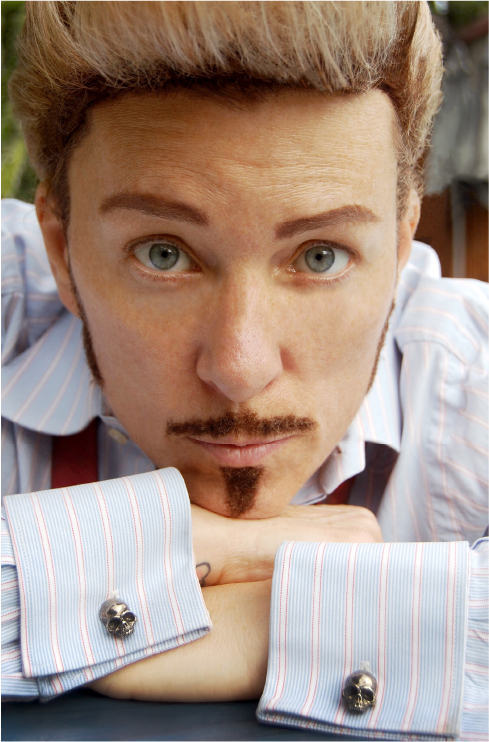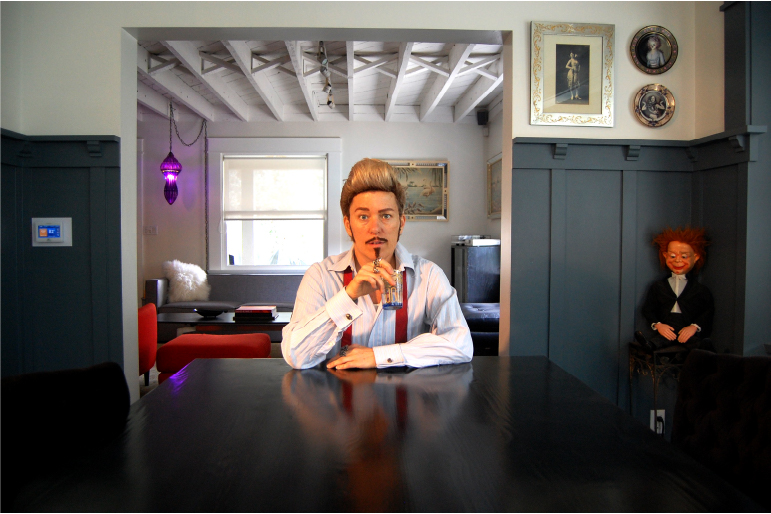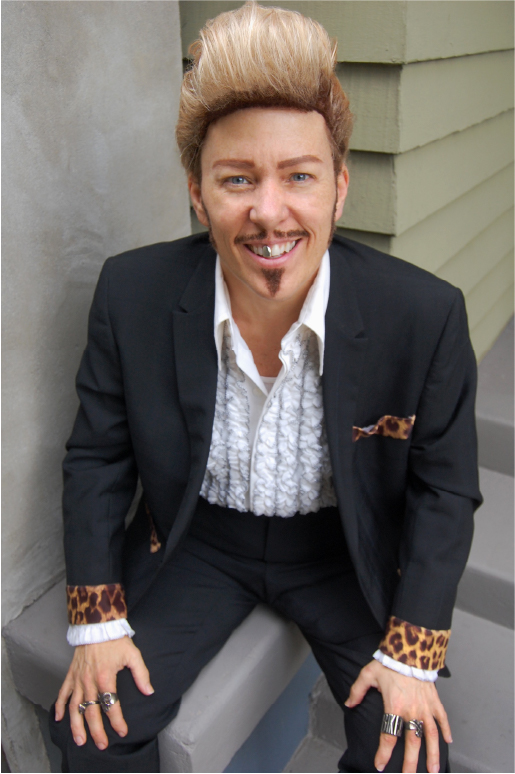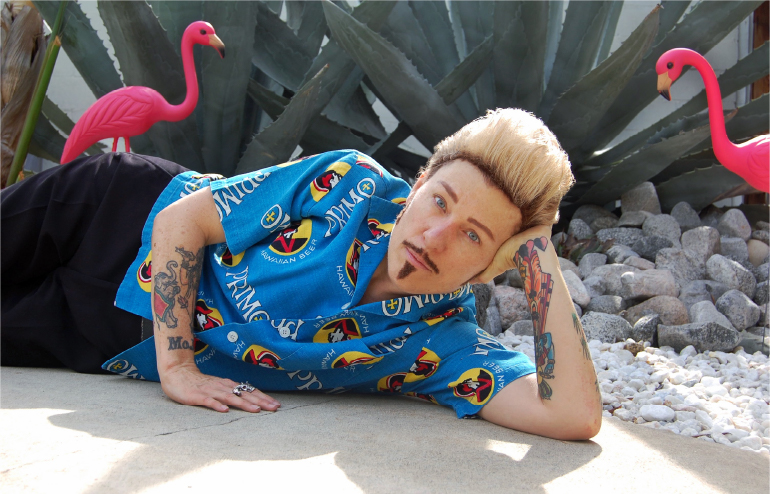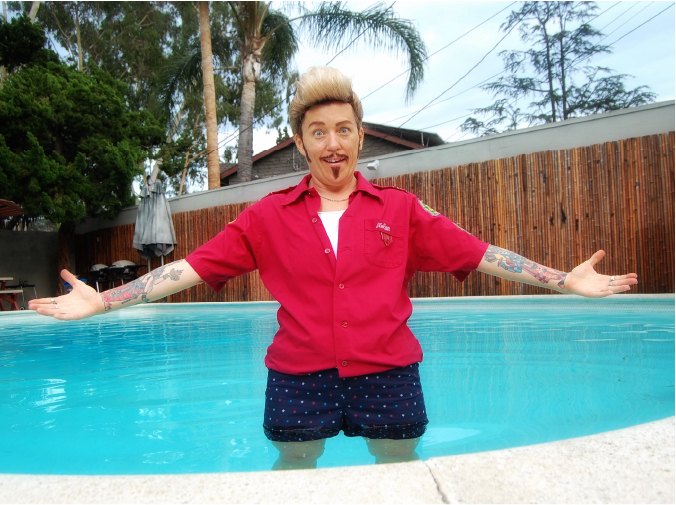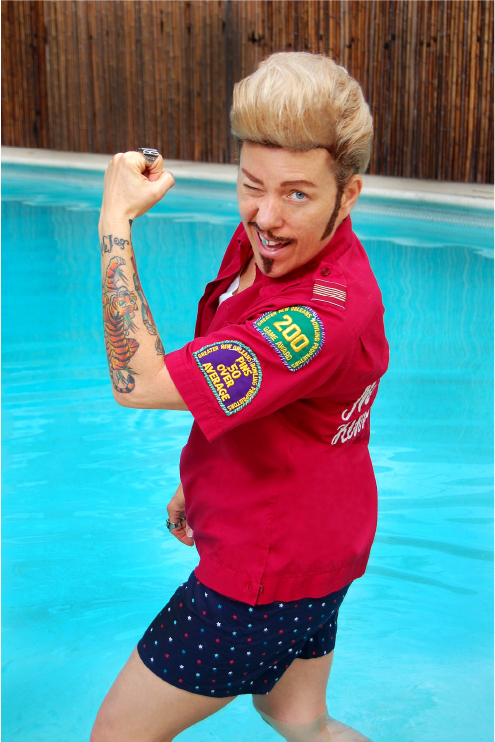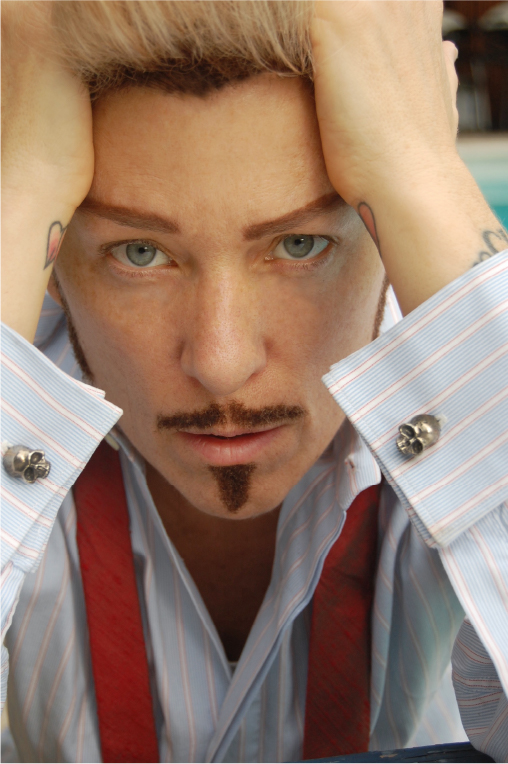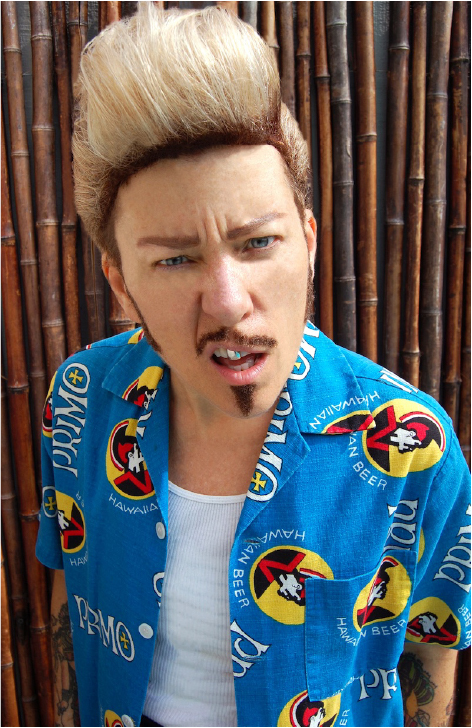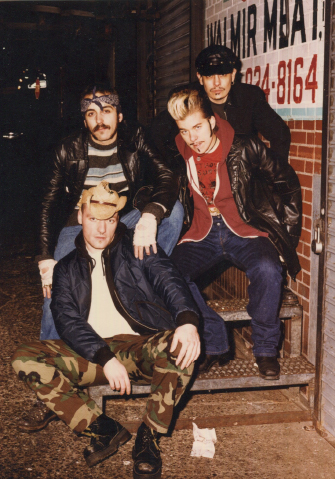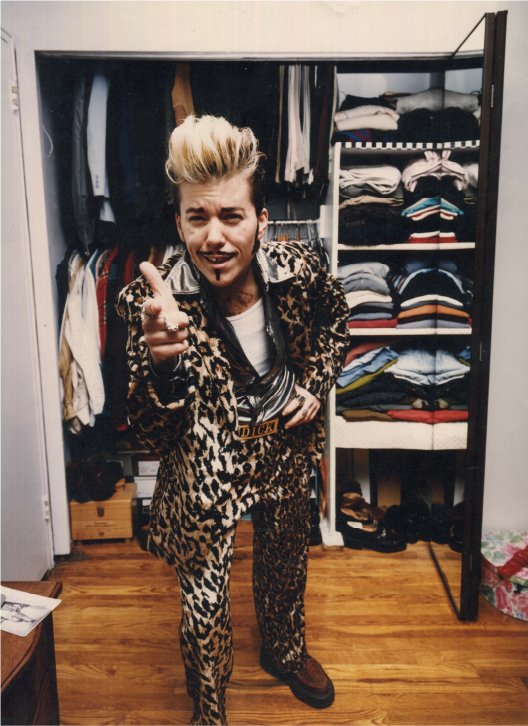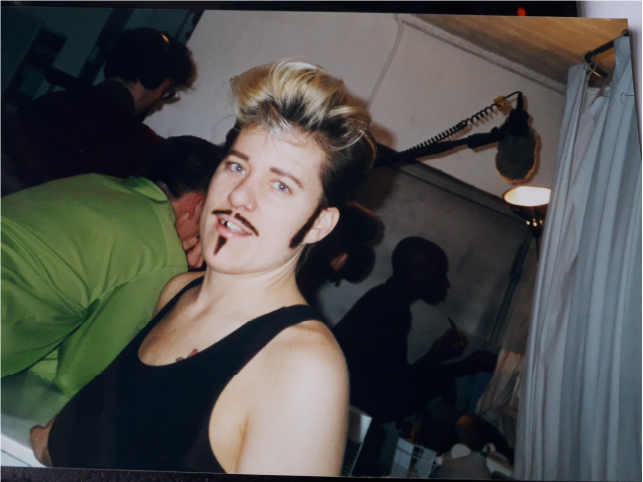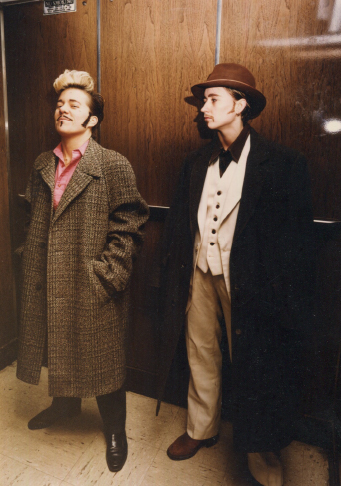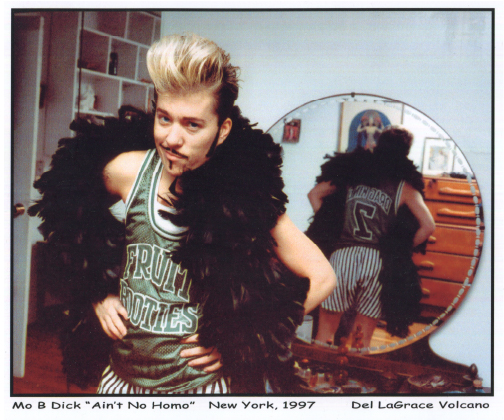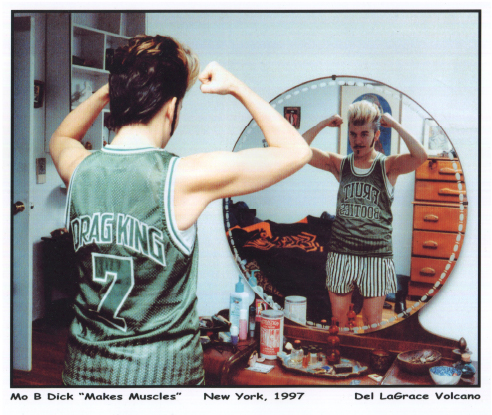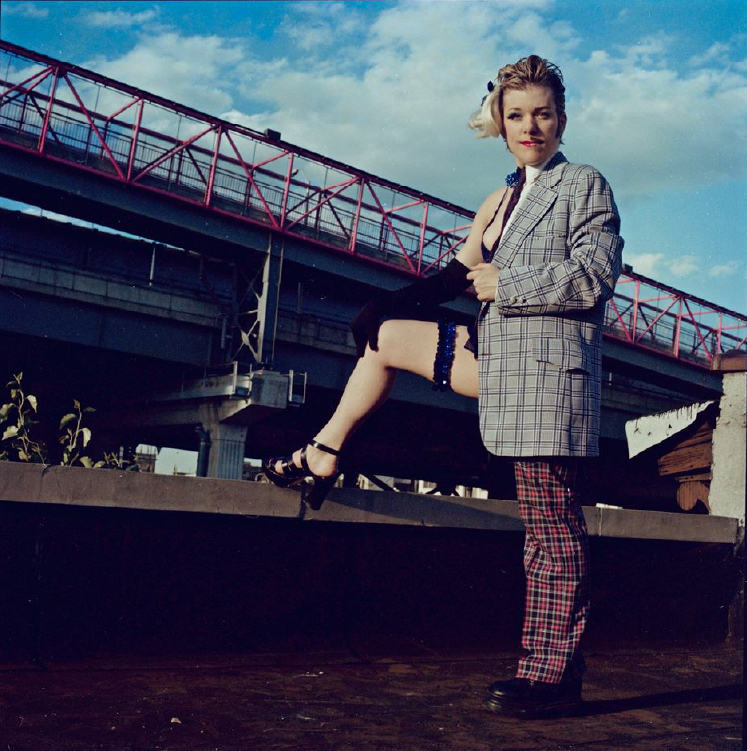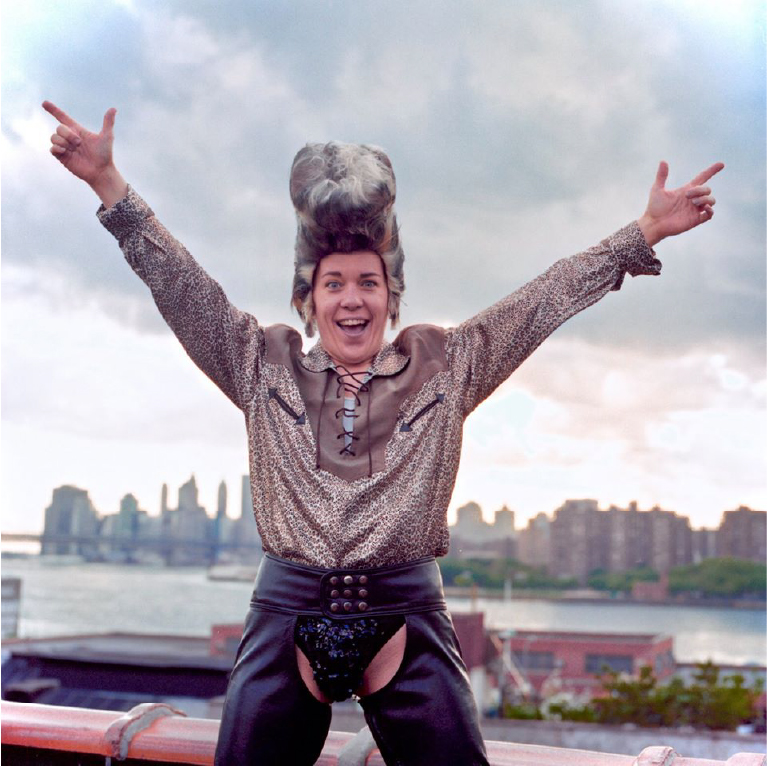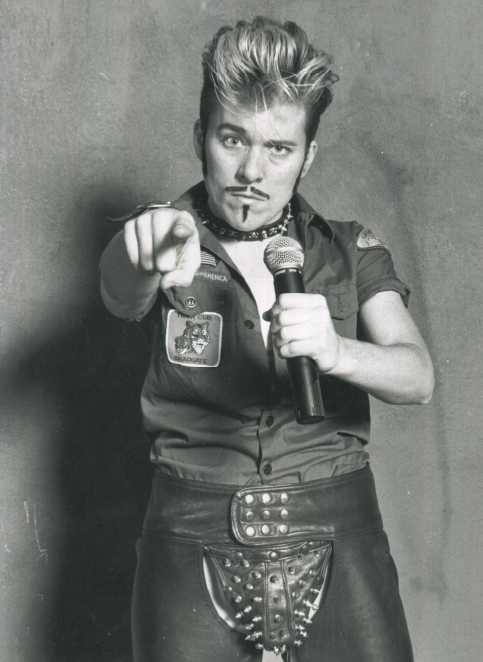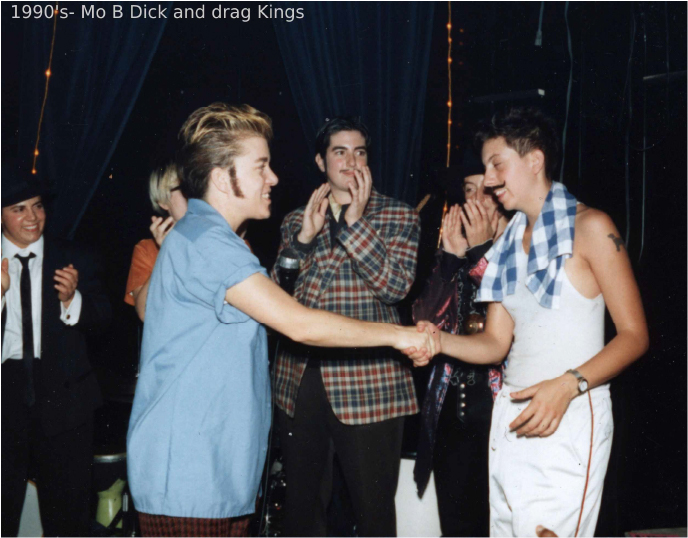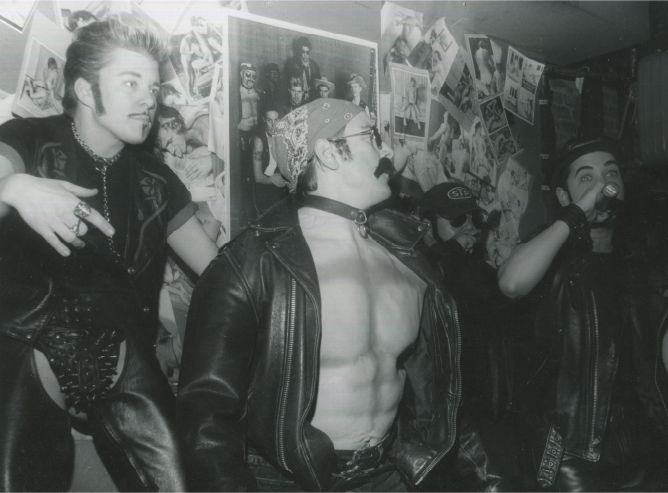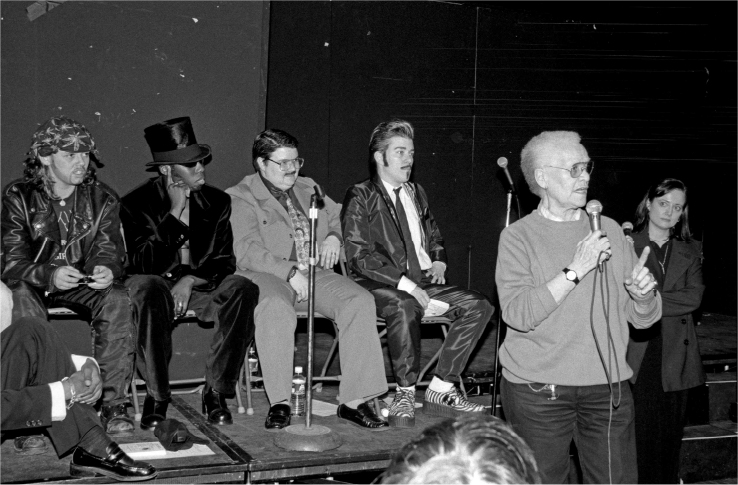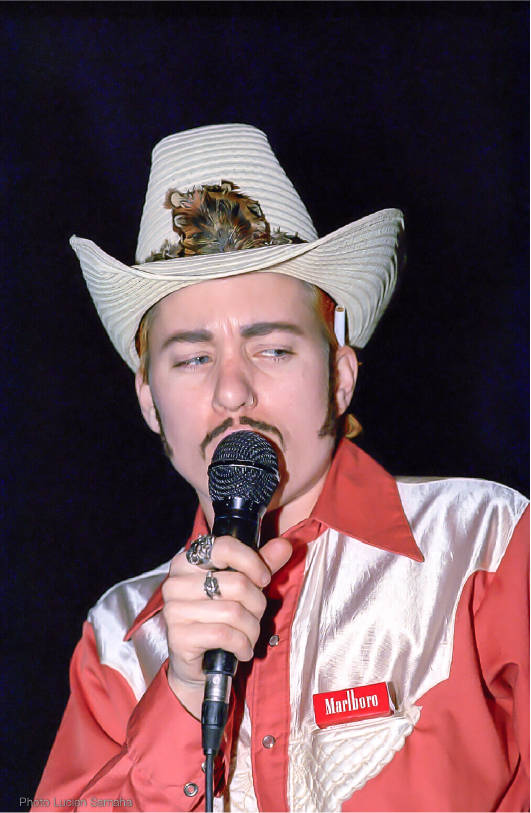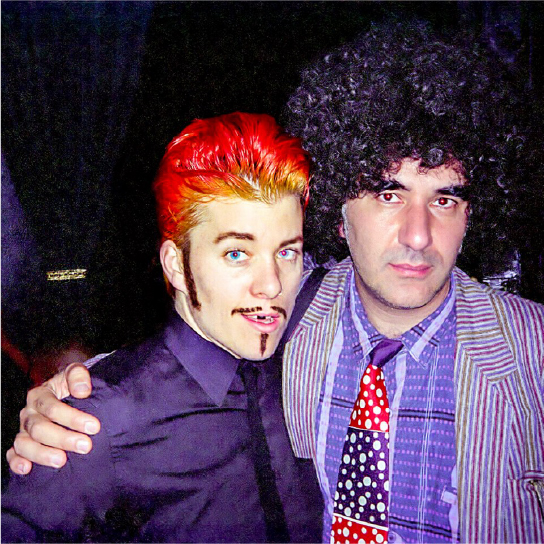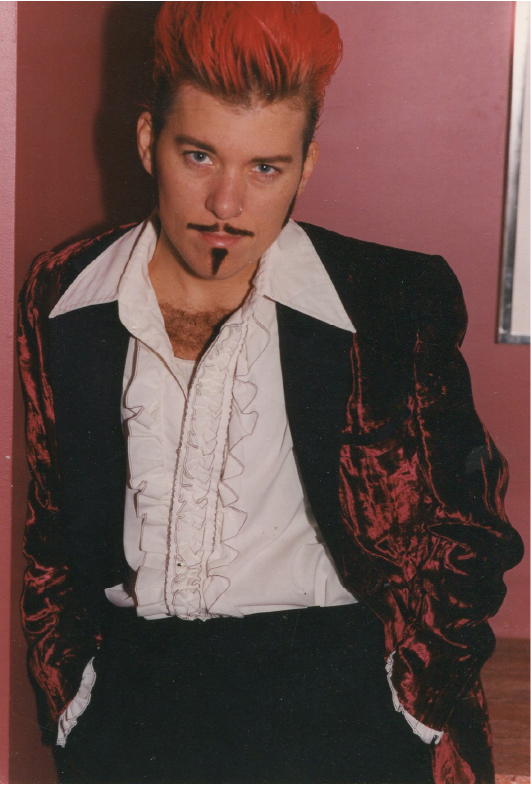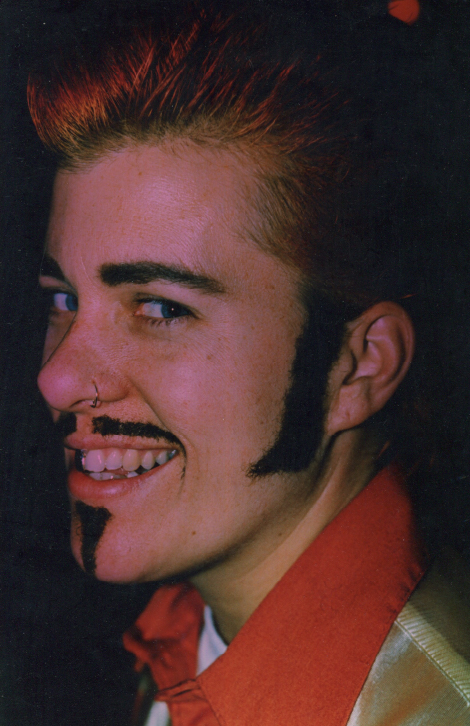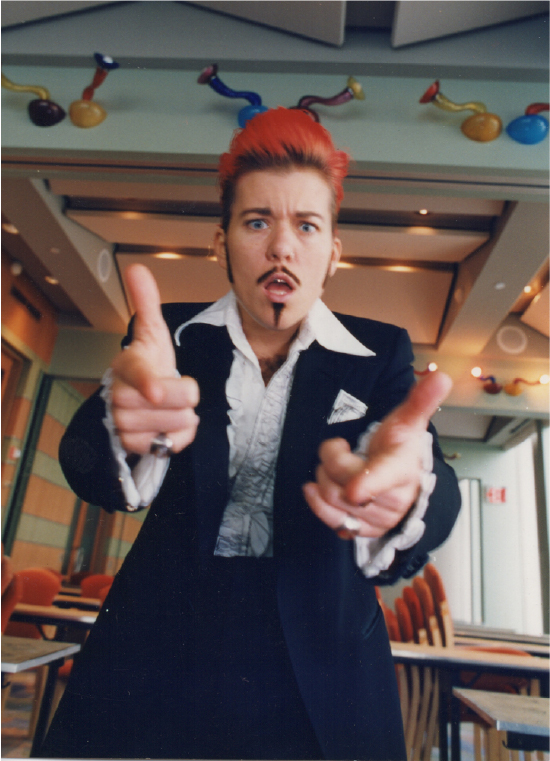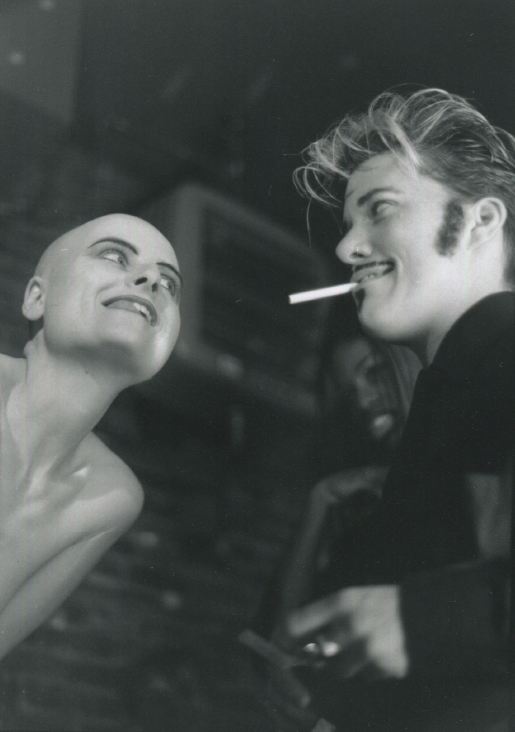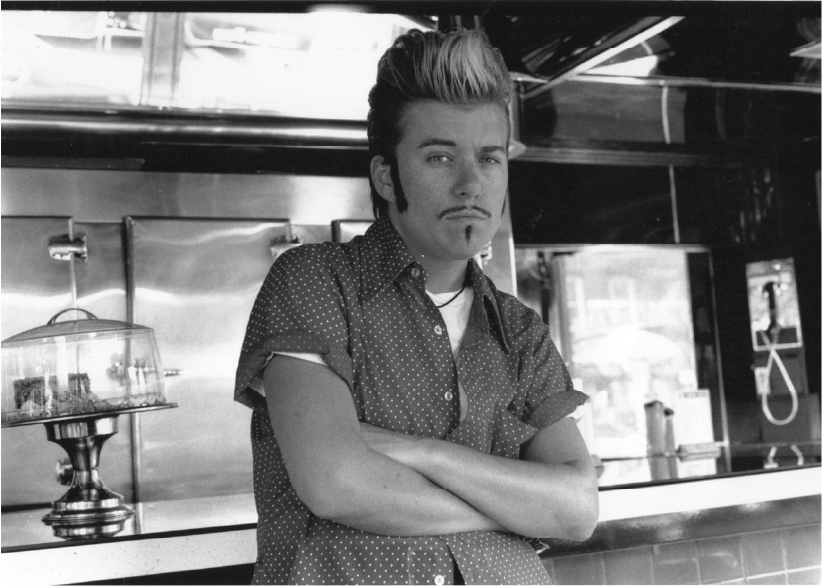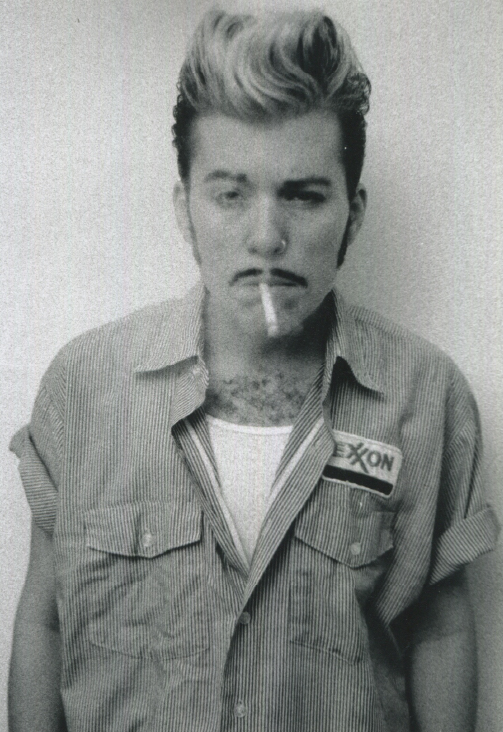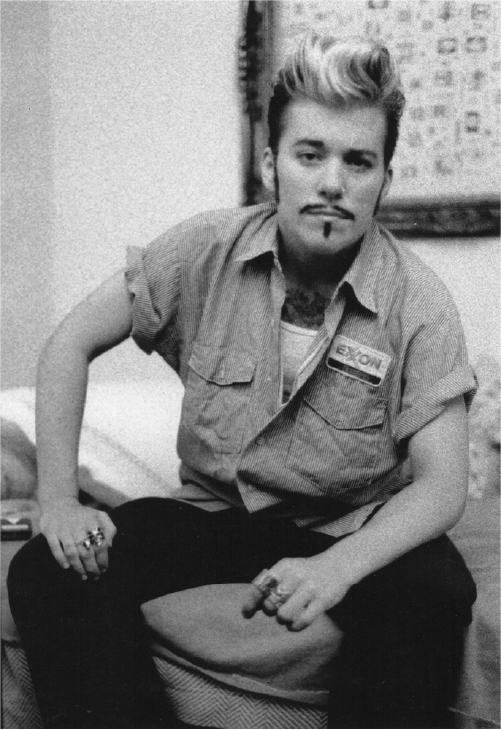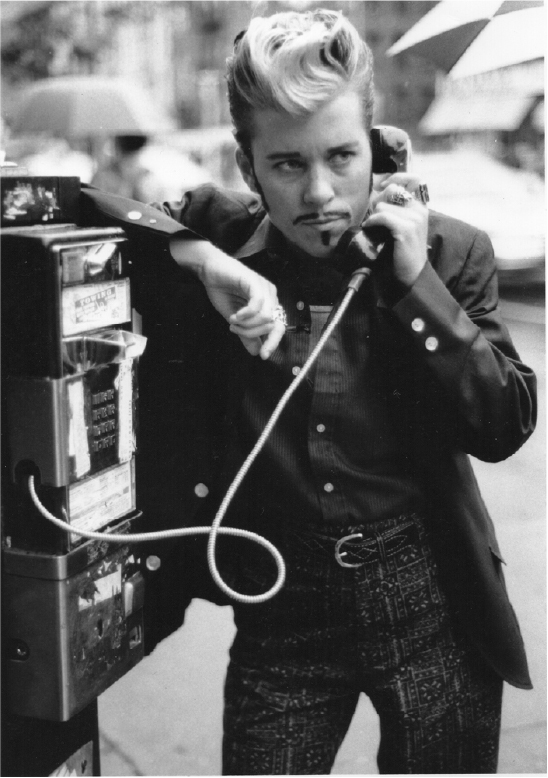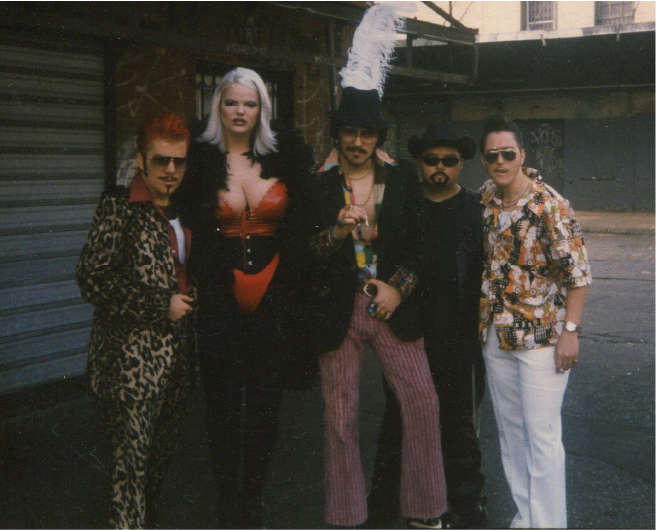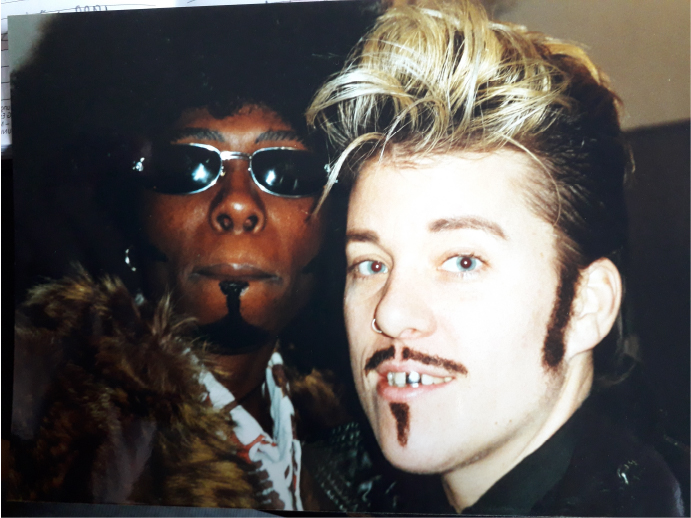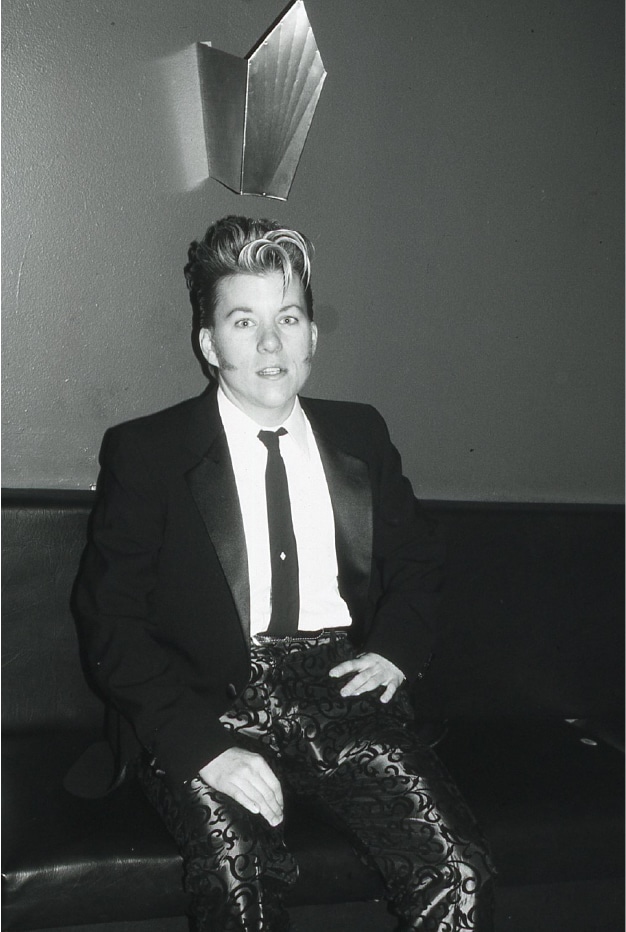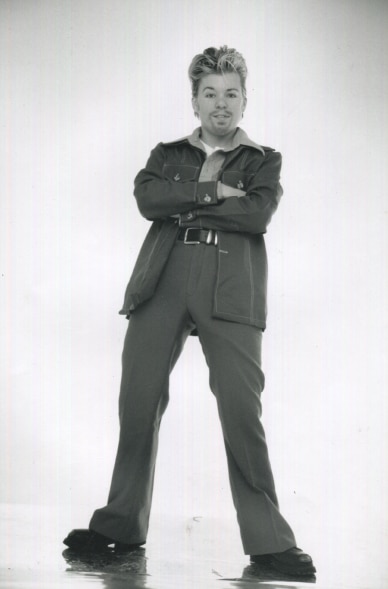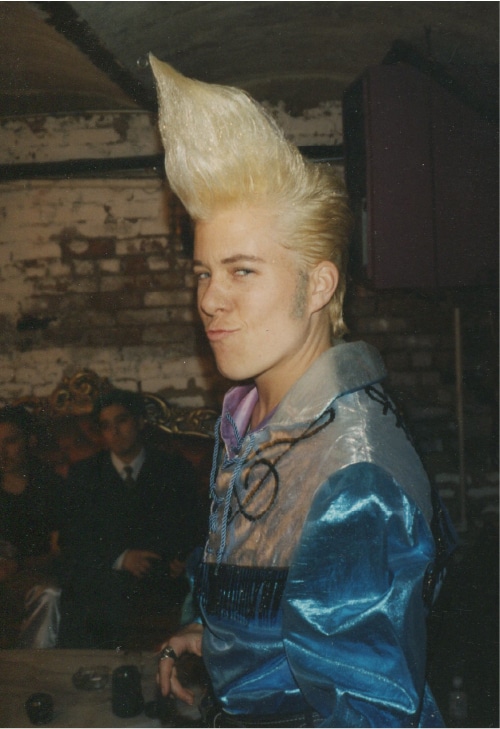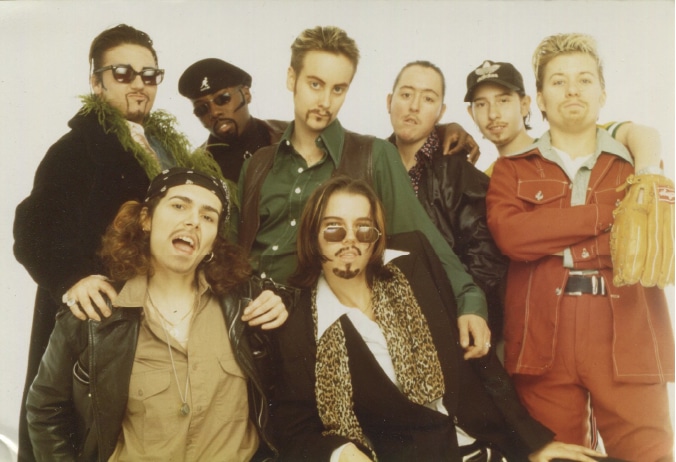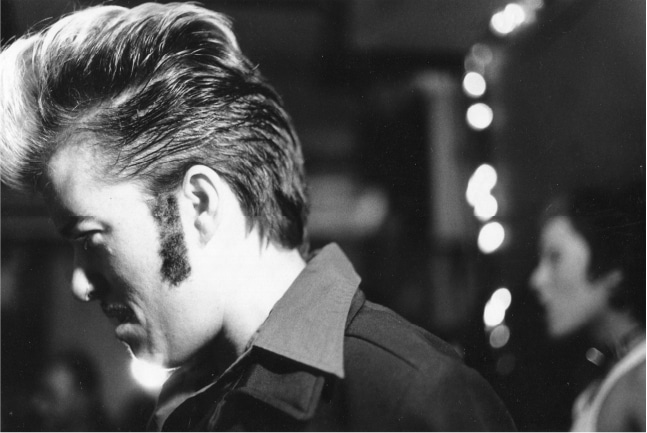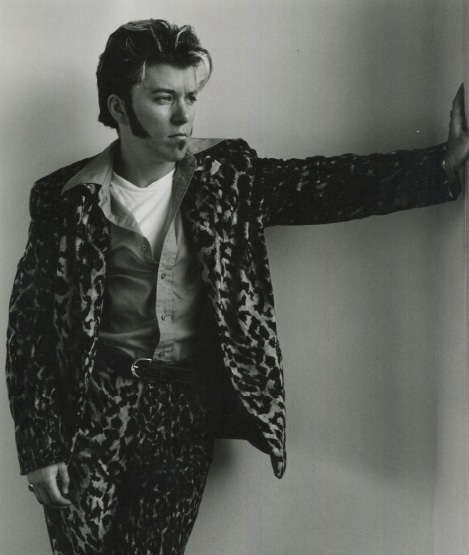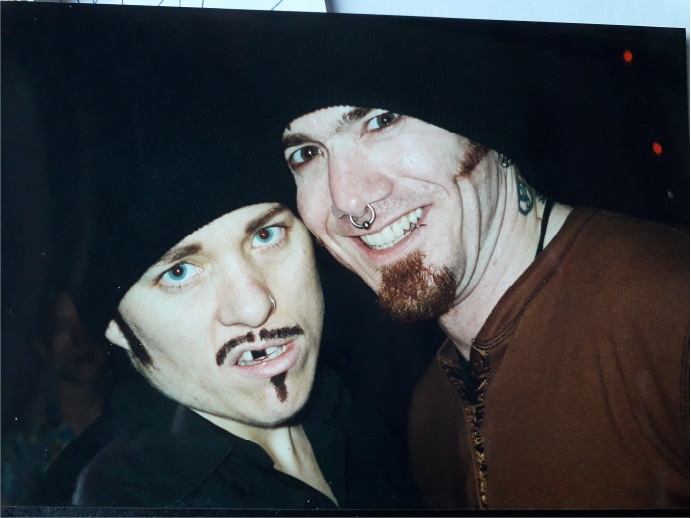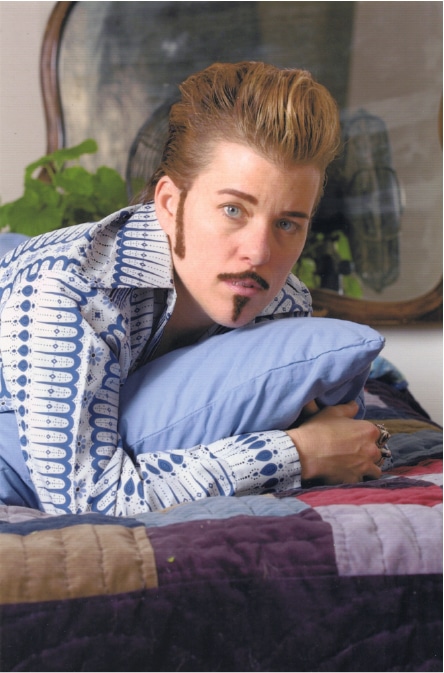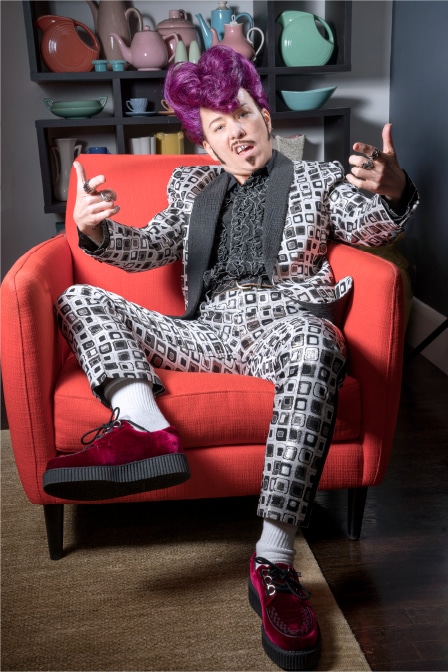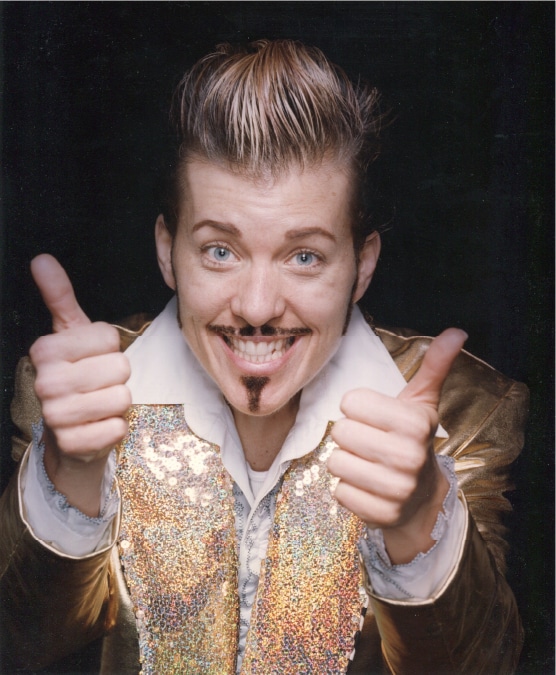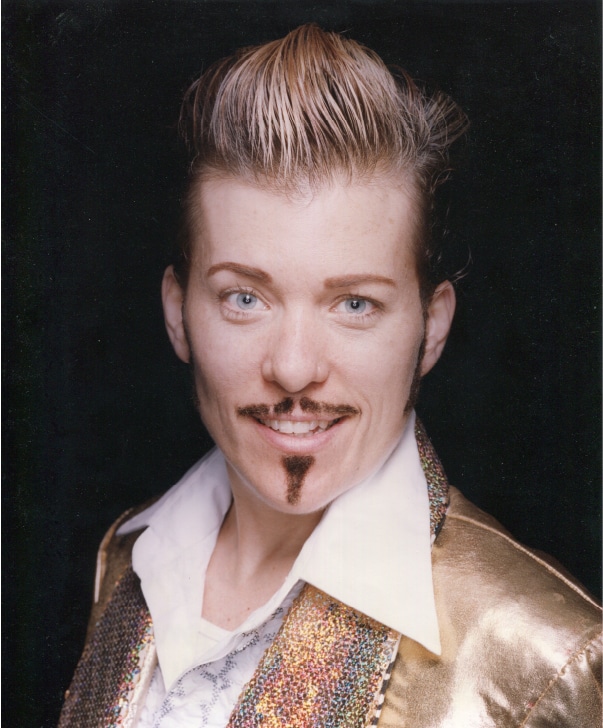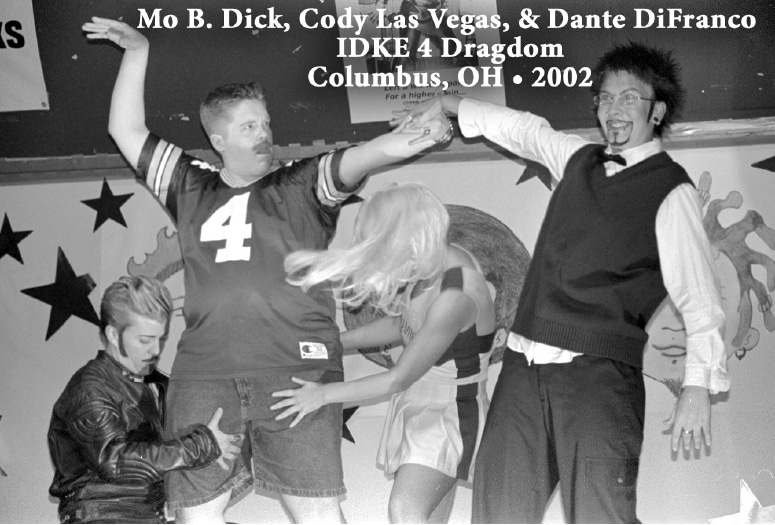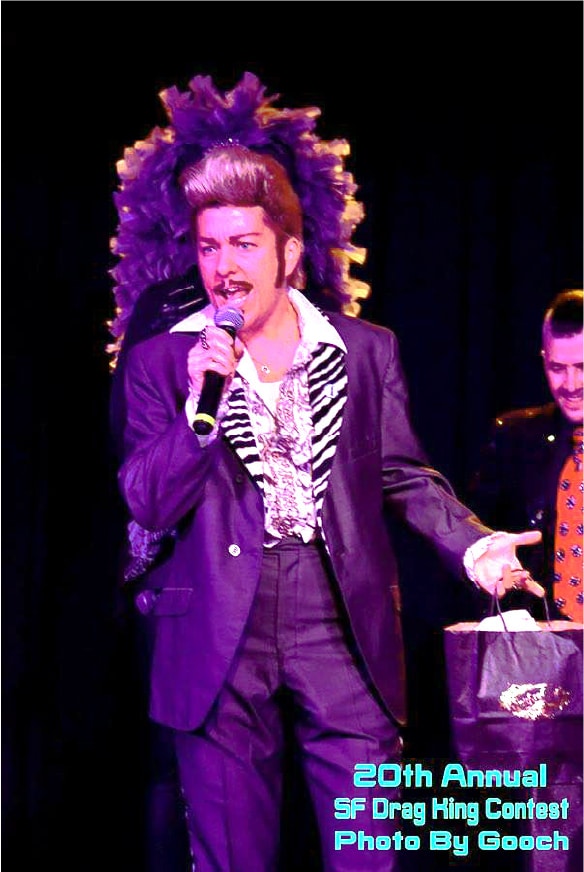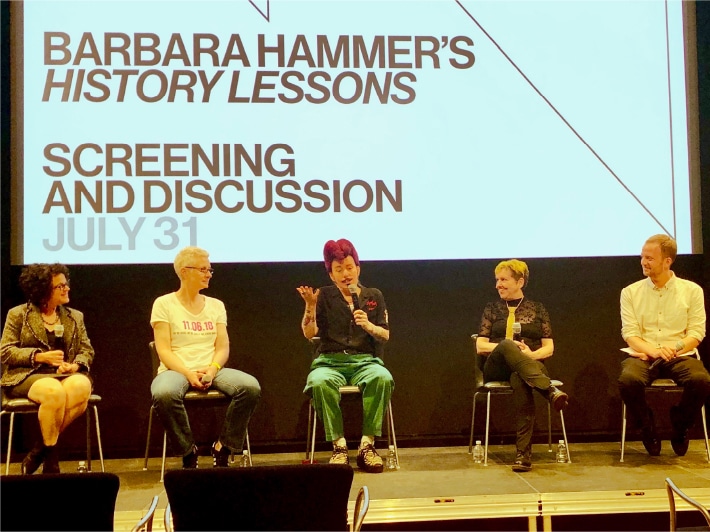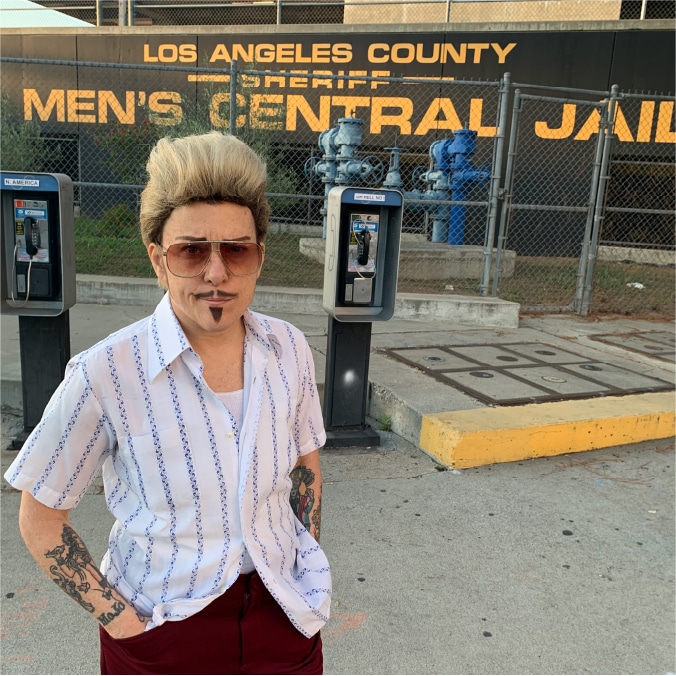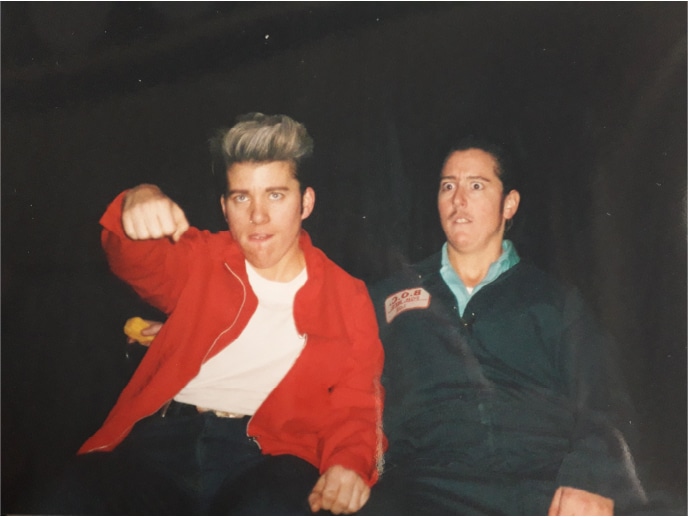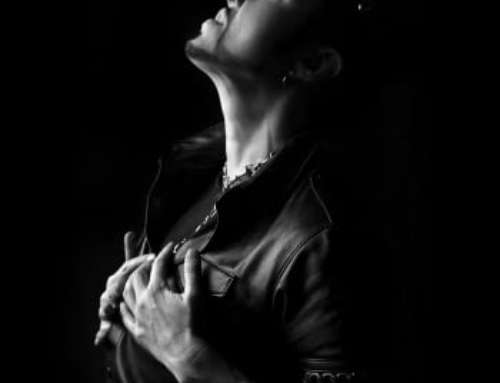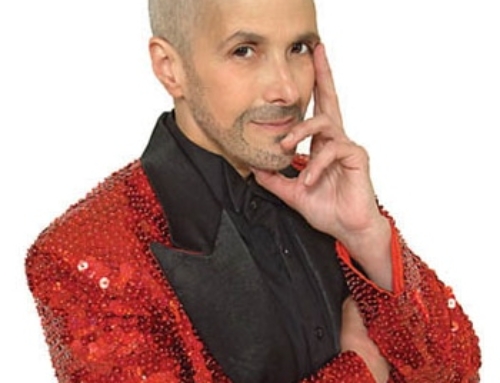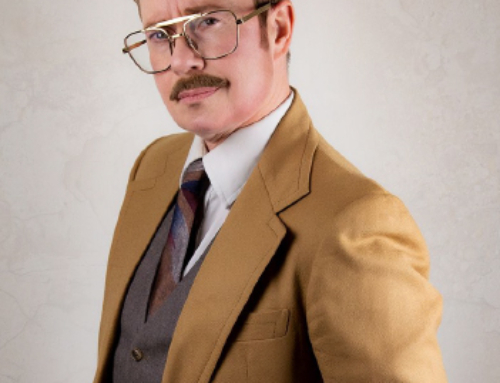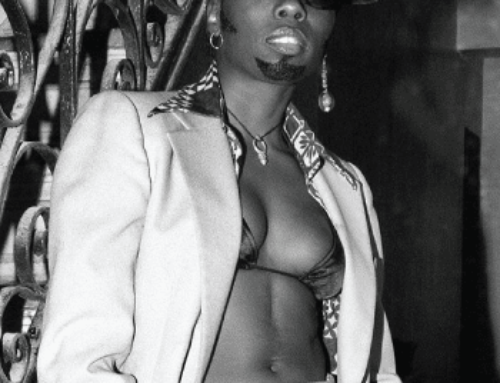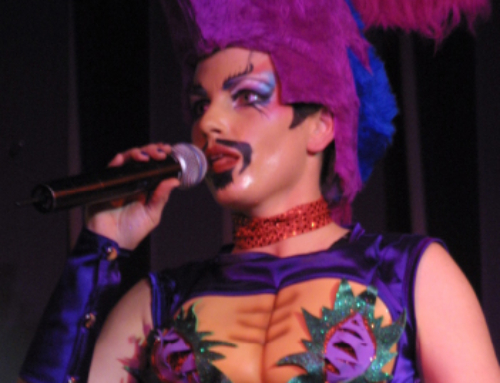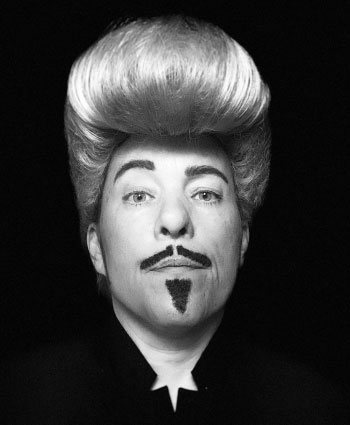
Years active
1995 – Present
Stage Name(s)
Mo B. Dick
Category
Drag King
Country of Origin
USA
Birth – Death
1965 –
Bio
Legendary Drag King Mo B. Dick is cited as one of the founding fathers of the modern day Drag King movement. Starting in November 1995 in New York City, Mo B. Dick pioneered many firsts for Drag Kings. Mo produced and hosted Club Casanova, the world’s first weekly party, dedicated solely to Drag Kings. Then Mo took The Men of Club Casanova on the road for the first ever Drag King cabaret tour of US and Canada. John Waters handpicked Mo for his film Pecker where Mo played T-Bone the stripper with a Drag King twist. Mo B. Dick was heavily featured in The Drag King Book by Judith “Jack” Halberstam and iconic photographer Del LaGrace Volcano which was the first book about and for Drag Kings. MTV aired, Y2K: Drag Kings, the first documentary on Drag Kings which was in heavy rotation and featured Mo B. Dick. And Mo was in filmmaker Gabriel Baur’s Venus Boyz, a ground-breaking feature documentary which was the first to showcase the exploration and expression of female masculinity through the lens of drag and its myriad of expressions. Teaming up with fellow Drag King Ken Vegas in 2018, Mo and Ken co-created dragkinghistory.com which is the first website about Drag Kings to be archived in The US Library of Congress. And in 2020, Mo celebrated his silver jubilee as a Drag King. For more than 25 years, Mo B. Dick has been the subject of books, documentaries, articles, periodicals, podcasts and more on Drag Kings proving he is a force to reckon with.
Born on April 7, 1965 to Louis and Barbara Fischer in Newtown Square, Pennsylvania (a suburb of Philadelphia), Mo Fischer grew up with six brothers and three sisters. Her male dominated Irish-Catholic upbringing impacted and informed her Drag King character and performance. Her father Lou made the greatest impression on Mo when she was a young girl. “In church on Sundays, I remember watching my father, Lou, help the priest with holy communion. As he sauntered to the altar, I was enamored by his confident stride. He owned that church. And I wanted that for myself. But by contrast, people told me that I was too aggressive and to “tone it down” which meant, I don’t have permission to own the world. Well…I didn’t agree.”(1)
Mo’s father, Lou, was an American college football player playing for Ohio State University under the tutelage of legendary head coach Woody Hayes. Her father started a chain of fast food restaurants on the East Coast along with NFL football players Alan Ameche, Joe Campanella and Gino Marchetti who played for the Baltimore Colts. The restaurants were named ‘Gino’s’ after Mo’s godfather Gino Marchetti who was a pro Football Hall of Fame inductee and voted as the greatest defensive end in pro football history. Surrounded by these larger than life men left an indelible impression upon Mo.
After spending two and a half years working with Habitat for Humanity in Kerala, India, Mo moved to New York City in January 1993 to complete her undergraduate studies at The New School for Social Research. While living in NYC, she decided to spend the summer of 1995 in Provincetown, Massachusetts “to beat the heat from the street”. It was in P-town where fate would change the course of her life. She befriended NYC legend Drag Queen Misstress Formika, sketch comic extraordinaire Nora Burns, and Drag Kings Buster Hymen and Julie Wheeler. Though reluctant at first due to the belief that Mo thought she was “too girly”, they influenced her to become a Drag King.
After her raucous summer in P-town and with the wind in her sails, Mo hit the road to explore America by train stopping in cities and towns where she had friends or family to visit. Upon her stay in San Francisco, her good friend Windy fortuitously saved an article on the local Drag King scene written by Amy Linn for The S.F. Weekly. The article highlighted many notable Drag Kings such as Elvis Herselvis, Diane Torr, Lu Read (Fudgie Frottage), S.F. luminaries Stafford, Jordy Jones, and musician Anderson Toone. The article also mentioned bisexual Frances Vavra who was a secretary by day, a Drag King at night and whose transformation was astounding. Realizing her initial belief that Drag Kings were ascribed only to butches or lesbians was a falsehood, cemented Mo’s decision to become a Drag King.
Upon her return to NYC in November 1995, Mo immediately got to work by forming an appendage from socks, studying how men walk, and gathering her hair clippings to create facial hair. When searching for men’s attire she found a bowling shirt in a local thrift store with the name “Dick” on it hence her Drag King name became Mo B. Dick, the “B” stands for Bodacious. She became “he” to hit the streets of NYC and frequent the lesbian bar Meow Mix in the East Village where she met up with her friends from P-town who didn’t recognize Mo in drag. While walking to the bar, she passed a group of men who would have normally verbally accosted Mo had she been dressed as a woman, but this time there was a slightly inaudible murmur “hey” and Mo responded “hey” back. To her great surprise, she felt safe walking the streets of NYC dressed as a Drag King.
Mo B. Dick was encouraged by Buster Hymen (Tracy Blackmer) who learned the art of being a Drag King from Diane Torr at Torr’s popular Drag King Workshop. Buster imparted this knowledge onto Mo which helped her create a plausible male character, and Buster asked Mo to participate in The Drag King Dating Game that s/he was hosting. This is where Mo met fellow Drag Kings Dred, Justin Kase and Labio and lifelong friendships and creative collaborations ensued. Mo then persuaded them to enter the first Drag King contest that s/he produced and hosted on December 17, 1995 at a party called Hippie Chix Gallery held at Global 33 restaurant at 93 2nd Ave in the East Village. The contestants were: Justin Kase, Sir Pat, Dred, Tony Stylin, and Mr Jive, and the guest judges were Buster Hymen, Shelly Mars and Nicole Zaray. Dred won the contest making it the first of many Drag King contests s/he won in rapid succession.
Quickly following Mo’s first foray into the Drag Kingdom, Mo B. Dick fast became a formidable presence in NYC’s downtown performance art scene. S/he joined forces with close friends and mentors Drag Queen Misstress Formika, nightclub promoter Mario Diaz and graphic designer David Morrow, to create Club Casanova, the world’s first weekly party, dedicated solely to Drag Kings. Opening night was Sunday, March 31, 1996 at The Pyramid Club located at 101 Avenue A in the East Village and featured “A Night with The Beatles” starring Justin Kase as Ringo Starr, Len E. Dykstra as Paul McCartney, Daddy Carl as John Lennon and Budd as George Harrison. Club Casanova was at The Pyramid Club for 3 weeks then moved to Coney Island High on St Mark’s Place for 4 weeks before finding its home at Cake at 99 Ave B.
When entering Club Casanova, there was a Drag King working the door, a Drag King DJ, Drag King go-go dancers, Drag King MC, and a Drag King show. The motto was “Club Casanova – Where Everyone is Treated like a King”. The Drag Kings rapidly became media darlings, and Mo B. Dick was the leader of the pack, taking the Kings to new found acclaim. Though short-lived, lasting just 21 months, Club Casanova made a profound impact on the emergence of a worldwide Drag King movement. Club Casanova spawned The Drag King Book, Gabriel Bauer’s feature documentary Venus Boyz, the song “Drag King Bar” by Bitch and Animal, and the careers for Drag Kings Dred, Murray Hill, Labio, Shon, Lizerace and more.
From the defunct Club Casanova website designed by John Gerity:
Mo B. Dick started Club Casanova with Mistress Formika in 1996 as the first weekly regular Drag King show in New York City. The idea was simply to give drag kings an outlet to express themselves, but what happened was an explosion. Queers, Hets, Bi’s, Dykes, Bikes, Freaks, Punks, Monks, and everyone else came from miles around to see those sexy swaggering macho sex-machines strut their stuff. The proprietor of this madness, Mr. Mo B. Dick, put together some amazing shows for dazzled onlookers. Shows got more elaborate and exciting. But then the police came. (2)
Despite a thriving Drag King scene, avid followers and enthusiastic interest, Mo B. Dick was forced to close Club Casanova after 21 successful months, due to pressures from then Mayor Rudy Giuliani. Nightclubs and performance spaces took a turn for the worse when Giuliani systematically forced numerous bar and nightclub closures just because he didn’t like them.
The birth of Mo B. Dick didn’t develop right away as Mo tried on different personas before settling into a parody of a tough-talking, womanizing, wise guy from Brooklyn. With his signature pompadour, gold tooth and sharp suits, Mo became the voice of a new generation within a burgeoning Drag King movement. In fact, Mo caught the attention of famed cult filmmaker John Waters, who personally cast Mo in his film Pecker as T-Bone the stripper with a Drag King twist. After reading about Mo in numerous publications, Waters interviewed Mo for Jean Stein’s literary journal Grand Street.
“The birth of my character came when they asked me to perform at Slimelight, as I used to call it – Limelight – at the 1996 New York Lesbian and Gay Experimental Film Benefit (on Wednesday, May 22, 1996). So I did this whole piece, this monologue about films and Pamela Anderson Lee and Showgirls: “beautiful tits, those girls are real actors. I’d put them in all my films.” I was just a schmuck, but I was feigning sickness through the whole thing. Then I fell to the floor after the monologue, put these wings on and this headgear with these big eyes, and lip-synched the song Human Fly, you know, by The Cramps. So the subtext of that was men like this are pests. But then when you really look at the pests, they have survived for centuries. So what are you gonna do ? Instead of being an angry woman, I became a funny man.” (3)
To further illustrate the man, the myth, the motion, here is an accurate theoretical analysis of Mo B. Dick by Kathryn Rosenfeld:
“Mo seems to represent a fairly conscious performance of whiteness: his character at once reveals characterizations of the working-class white male as sexist, homophobic, and exaggeratedly macho for the stereotypes they are, and intervenes in these machinations of power as they adhere to the figure of white maleness he embodies. As the actor behind the character, Fischer in some ways takes all of these characterizations upon herself, and with them their attendant power plays. Mo (B. Dick) has rigid ideas about what men and women are, and gets confused when these are challenged, as when he finds himself in bawdy performances with drag queens, or even, as in one instance, performing in female drag himself. In these situations, Fischer seems to play Mo as mostly in the dark as to the queerness of his circumstances, and naively befuddled where it becomes clear to him that something is “not quite right” gender-wise. At the same time, Fischer’s own savvy about these things and about the parodic irony of her character is always subtly present in Mo. The pleasure and sexiness of a drag king persona like Mo lies in his ability to claim some of the bravado of a certain flavor of white maleness for queer female subjects, while simultaneously mitigating the social power of that figure by proving that it can adhere to the very bodies and sexualities to which it tries to define itself in opposition. The power of the dominant other is thus made less potent and less threatening by mimetically becoming him.” (4)
Not one to be kept down, Mo B. Dick took the Men of Club Casanova on the road in the spring of 1998. This was a six week, 18-city tour of US and Canada, which was another first for the Drag Kings. The show starred Mo B. Dick as host and performer, his femme fatale The World Famous *Bob*, Drag Kings Antonio Caputo, the German gigolo, and Lucky 7 of Philadelphia. It proved to be an eye-opening, influential experience for the scores of fans and followers who attended every show from coast to coast. Many audiences had never seen nor heard of a Drag King so this inspired the future Drag King performers and troupes that emerged in the late 1990’s and early aughts.
In 1999, The Drag King Book by Judith “Jack” Halberstam and famed photographer Del LaGrace Volcano hit the bookstores and fast became an international hot commodity. Mo B. Dick was heavily featured in this seminal work, and knew his mission to put Drag Kings on the cultural performance-art map became a successful reality, as this fostered Drag King troupes and communities all over the world.
Mo B. Dick made numerous appearances on the silver screen. Mo was heavily featured in the documentaries: Venus Boyz by Gabriel Baur in 2002, Sex2K: Drag Kings for MTV in 2000, God Shave the Queen for HBO in 1999, and Downtown Darlings by Daniel Falcone for Sundance in 1998. Mo’s appearances expanded to indie films and television shows: Pecker by John Waters in 1998, Terror Firmer by Troma in 1999, Gendernaughts by Monika Treut in 1999, History Lessons by Barbara Hammer in 2000, Sex & the City and Maury Povich. He even crossed the stage in theater productions of Shakespeare with Borax Productions, original works by Mabou Mines, and the NYC Fringe Festival.
2001 and 2002 saw two more tours of US and Canada with local Drag King communities opening up for The Men of Club Casanova, and once again proving this was the hottest ticket in every town they visited.
In early 2004, Mo left beloved NYC and moved to Los Angeles, CA. After a brief hiatus, Mo B. Dick dusted off his leopard suit, and shaped up his pompadour, to create a web series and make local nightclub appearances. 2013 saw a cameo in the pilot for Rebel Wilson’s television show Super Fun Night though the footage disappeared on the cutting room floor. In 2012, 2014, 2015, Mo served as a guest judge for the annual San Francisco Drag King contest organized by fellow Drag King and producer Fudgie Frottage.
In January 2018, Mo teamed up with fellow Drag King Ken Vegas of Washington, D.C., to co-create dragkinghistory.com, a website dedicated to preserving this art form. Drag King Flare of Toronto, Canada served as consultant in the formation of this project. The website showcases all of the women who have donned men’s attire for theatrical purposes from breeches roles to en travesti, variety to vaudeville, male impersonation to drag kings, and drag kings to the gender free. In 2020, The U.S. Library of Congress requested and was granted permission to archive this website for generations to come.
In 2020, while home in quarantine due to Covid-19, Mo co-produced & hosted Kings of the World, a global cyber Drag King variety show with local Los Angeles Drag Kings Johnny Gentleman and Pelvis Breastly. These shows fostered Drag King camaraderie among six of the seven continents and continued to further galvanize the global outreach for Drag King’s.
Mo B. Dick celebrated his silver jubilee as a Drag King in November 2020. To commemorate this monumental event, Mo teamed up with Ken Vegas, Fudgie Frottage and Flare to co-produce Drag King Legends, an online event that aired on February 21, 2021. This event showcased 15 Drag King’s with 25 or more years of experience who have contributed greatly to the Drag King community and who have kept this art form going.
For more than 25 years, Mo B. Dick has been the subject of books, documentaries, articles, periodicals, podcasts and more on Drag Kings proving he is a force to reckon with.
(Submitted by Mo B. Dick, Los Angeles, CA)

